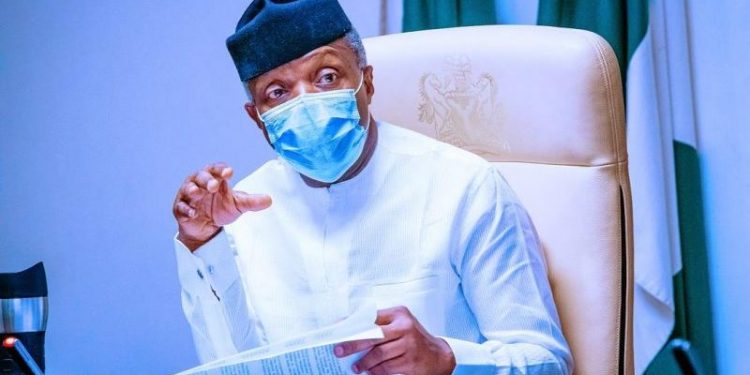
Just recently, the Vice President of Nigeria, Yemi Osinbajo became the most important voice in the government on the side of the crypto market.
During a presentation at the Bankers Committee conference, he suggested that the country’s financial regulator, the Central Bank of Nigeria (CBN) may be acting in fear rather than knowledge in putting prohibitions on financial services to the market.
Cryptocurrency in Nigeria: Most sensible approach to the market is a robust regulation – VP
According to the VP, the most sensible approach to the market is a robust regulation since it is impossible to enforce a total ban.
“Cryptocurrencies in the coming years will challenge traditional banking, including reserve banking, in ways that we cannot yet imagine, so we need to be prepared for that seismic shift,” Osinbajo said in a video posted on his official Twitter handle.
The CBN had said the directive became necessary to protect the financial system and the generality of Nigerians (including the youth population) from the risks inherent in crypto assets transactions. The regulator claimed the risks have escalated in recent times and have dire consequences for the integrity of the financial system and financial stability.
The market’s link with criminals is not a surprise for cryptocurrency exchanges. It is a reality many of them have taken measures to address. Their efforts have ensured that Nigeria does not feature on the list of countries considered a haven for money laundering, illicit transactions, and terrorism financing.
“Nigeria is one of the safest crypto markets in the world when it comes to the use of cryptocurrencies. Nigeria is not even on the map for illicit transactions for cryptocurrency transactions, but you find the likes of the US, Russia, Germany, and Vietnam,” Senator Ihenyen, President of Stakeholders in Blockchain Association of Nigeria (SiBAN) said in an interview.
In view of the delay by regulators to sanitise the market, exchanges that operate in the country have been self-regulating their operations. Self-regulation in the context of exchanges is the establishment of guidelines and a code of conduct for market participants to operate businesses within the ecosystem. Those guidelines span a broad spectrum, from knowing your customers (KYC) to maintaining transparency to ensuring security against hacks.
SunNews




















































